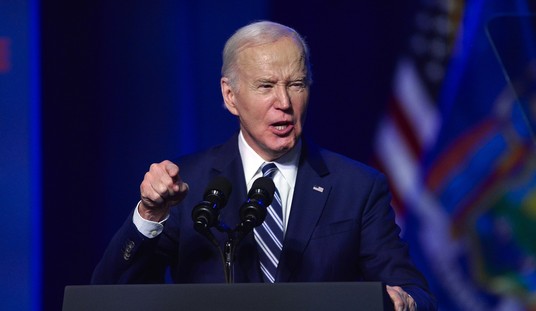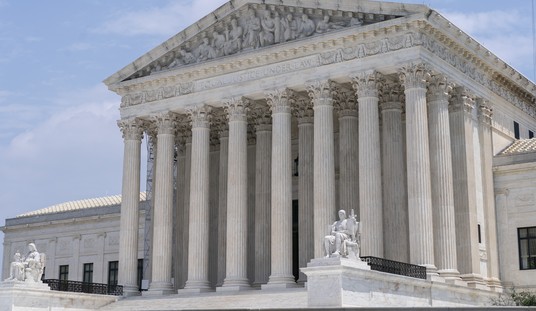The Left’s cherished new idea is that if someone doesn’t give you something for “free,” such as birth control, they are “denying your access” to it. That’s clearly absurd on the most basic common sense level, the kind of thinking a reasonably clever child would shred in a matter of moments, but it’s becoming something like a religious imperative for liberals – a new commandment written into the holy book of collectivism. Its pedigree can be traced to the centuries-old idea that people should not be forced to work for goods they are “entitled” to, as some basic human right, because that compromises our emotional authenticity; we are taught to think of ourselves as slaves to the cruel taskmaster who pays us for our voluntary labor, but expects us to buy our own bread. But these new cries of “Help! Help! I’m being oppressed!” when the boss doesn’t cough up all twenty of the contraceptive methods we’d like is a new high-octane distillation of collectivist notions about entitlement.
Inherent to these toxic ideas is a fundamental contempt for individual people, both employers and employees. And really, it’s the employees who get the heavier dose of disrespect. The inescapable assumption behind Condom Mandate Fever is that people are too damn stupid to buy their own supplies, no matter how cheap and freely available those supplies might be. In particular, women are portrayed as the helpless victims of male cads who refuse to kick in a few bucks for party supplies. This was explicitly part of the case activist Sandra Fluke made to the mock Congressional hearing that brought her into the limelight. Female college students couldn’t bear the (wildly exaggerated) financial burden of contraceptives, and their no-good boyfriends weren’t helping.
For a variety of reasons, including the sacramental status of everything related to “women’s reproductive health” in modern feminist culture, this became the beta test of a new argument we’ll be hearing again in the future: no matter how affordable something might be, if it’s really important, there’s some kind of insult inherent in asking people to procure it for themselves. That’s the kind of thinking that gave us a trillion-dollar centrally planned health care boondoggle. Liberals told us we simply couldn’t leave people alone to make their own reasonable agreements for insurance coverage. Predatory employers and insurance providers would rake the Sainted Middle Class over the coals, while “free riders” would keep dragging their uninsured carcasses into hospital emergency rooms and receiving pro bono treatment. (Interestingly, the latter problem has actually gotten worse since the launch of ObamaCare, which was sold in large part as an effort to eliminate it. But people in the lower income brackets are more likely than ever to do without coverage and hit the emergency room when they have health problems.)
What if we went the other way? Instead of hyper-regulating, mandating, and subsidizing everything, what if we dismantled the cyclopean machinery of the Compliance State and left free people alone to work things out, guided by the reliable economic laws of supply and demand?
We haven’t had anything resembling a free market in medicine, or health insurance, in decades. It was government interference that screwed things up enough to make ObamaCare politically feasible. It is highly unlikely that the market-distorting concept of “employer-provided insurance” would ever have existed, absent wage controls that forced employers to offer benefits instead of pay. Imagine what both insurance and medicine might cost, if they were shaped by the sort of consumer forces that fill our store shelves with inexpensive high-quality goods. How complicated of an insurance system would we need, if free-market competition made everything cheap and simple enough?
What about wages? If we removed the mountain of mandates and regulations governing hiring, firing, and compensation, what would happen to our incomes? The conventional-wisdom answer is that greedy corporations would love to do away with the minimum wage, so they could pay everyone pennies and bank huge profits. But the remorseless logic of supply and demand, the forces of market competition, make that outcome unlikely. For one thing, employers would naturally compete for the best workers, bringing wages up from whatever one-dollar-per-hour nightmare scenario we might envision. Nobody would accept an employment contract that didn’t pay them enough to make working worth the effort. To be brutally frank, that happens now. Lavish welfare benefits demonstrably provide incentives to pass up on low-paying jobs, on the entirely reasonable (if distressing) basis that it doesn’t make sense to work hard for $8 an hour when you can collect $9 an hour in benefits from the government while doing nothing. It might not make much sense to take that $8 an hour job if the welfare is worth $7 an hour, either. Or six dollars. Different people have different work ethics.
Robber barons gleefully anticipating obscene profits in the era of no minimum wage laws would quickly run into trouble when the wage base dropped, and no one could afford their products any more. Raise the minimum wage to $15 an hour, and you end up with $10 hamburgers at fast food joints. Lower wages to $1 per hour, and nobody can afford to buy $3 hamburgers any more.
What happens if the maze of corporate-welfare subsidies goes away, for everything from solar panels to oil? That’s a huge amount of money seized from American taxpayers and “re-invested” by a government that skims quite a bit of the loot off the top, to keep bureaucrats and politicians in high style. Wipe all that out – start with the Export-Import Bank, and keep going – and where would we be? Wouldn’t free citizens find a way to provide the goods that other citizens desire, at prices they can afford?
If the compulsive force exercised “for our own good” was cleansed from society – leaving us with a smaller, vastly more honest government dedicated to defending our universal liberties – isn’t it a safe bet to assume that free people would find more efficient ways to do good things? Champions of Big Government often scoff that private charity cannot be trusted to administer benefits for all the needy people in this, the most prosperous nation humanity has yet created. But if a truly free market made goods and services inexpensive, unleashing the engines of capitalist prosperity and eliminating the insane overhead cost of Big Government, every dollar of charity would become much more powerful… and fewer people would need it. There is so much productivity, creativity, and compassion in the American people that I feel very safe in betting that we could care for the truly destitute, and provide ample safety-net protection for the unfortunate, with pocket change… if were set free to fill our pockets with the full profits of our labor and investment.
The statists will never take that bet. We will always be told liberty is too risky, too dangerous… a road not traveled whose toll we can never afford to pay. Billion-dollar programs spin up in the blink of an eye… but we’re told that if we shut them down, they’ll be dead forever, and we can’t afford to risk the lives of all the people who have grown dependent upon them. We must trust the State, because we cannot trust ourselves.
Of course, a lot of the people who say that are either beneficiaries of these massive programs, or officials who amass tidy fortunes by administering them. But don’t dare call them “greedy” or question their selfless devotion to society. Don’t ask how much better things might be, if they were not in control. Don’t ask if the benefits of their stewardship are worth the fantastic price we are compelled to pay them. You must accept your place in a maze of taxes and subsidies, unaware of what anything really costs, making your decisions based on illusions that others are forced to maintain. After wandering that maze for generations, a distressing number of us are willing to accept the bizarre idea that certain things are either “free,” or forbidden. You can expect that list to grow, along with the contempt of the elite for the people they rule.














Join the conversation as a VIP Member